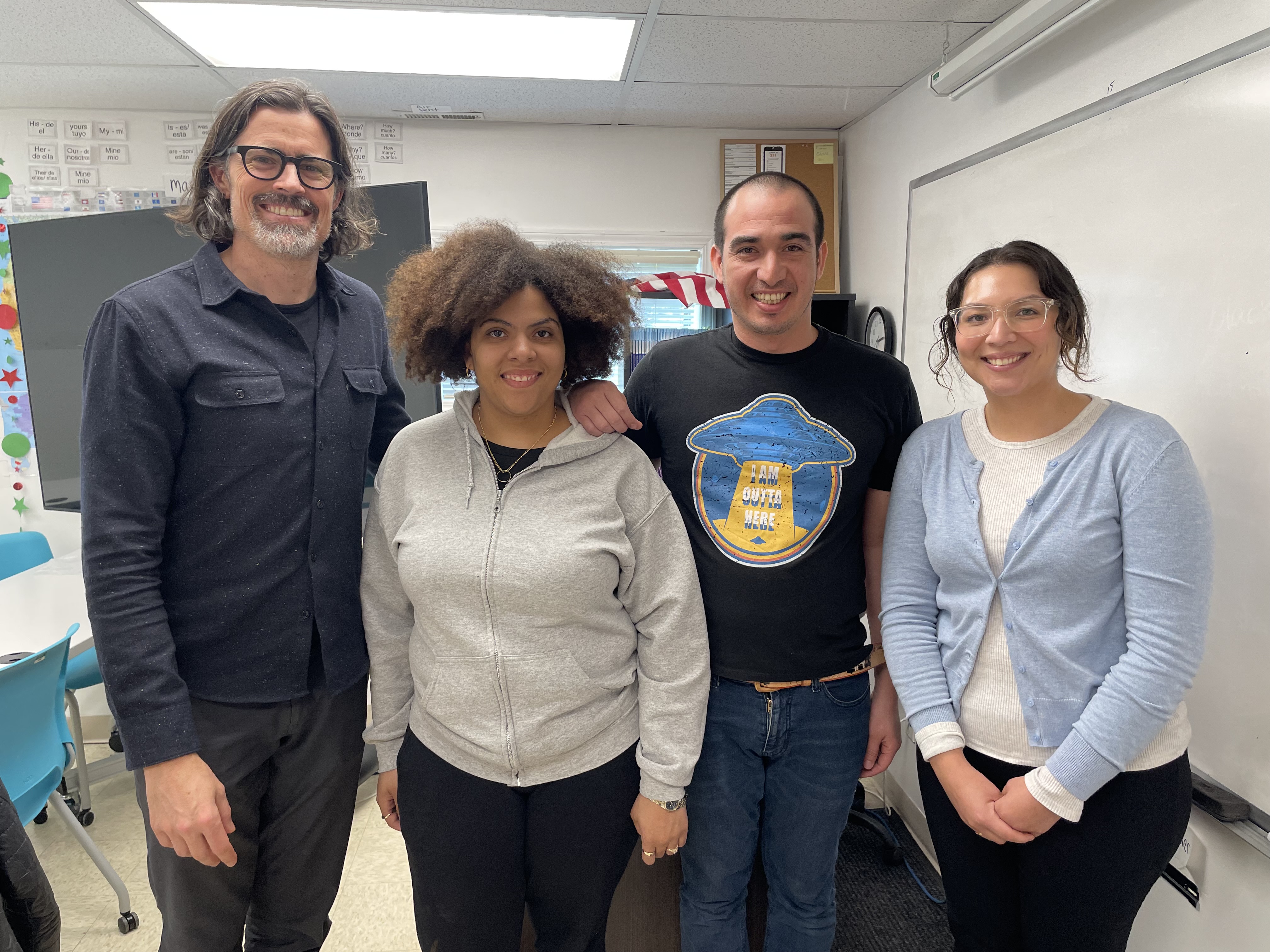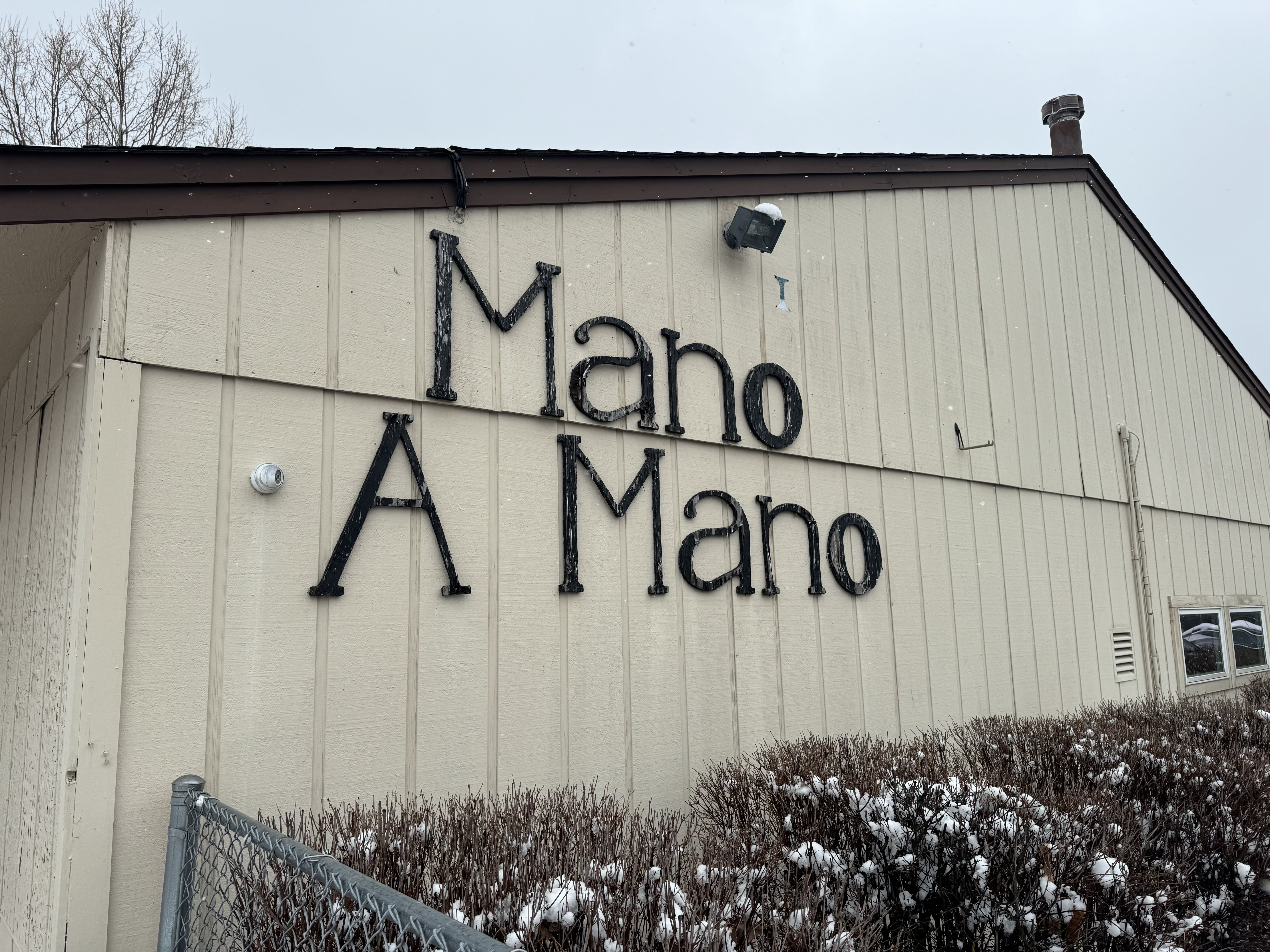 From left to right: Lamont Black, community members Regala and Fernando, Joanna Jaimes. (Image courtesy of Lamont Black)
From left to right: Lamont Black, community members Regala and Fernando, Joanna Jaimes. (Image courtesy of Lamont Black) According to the American Payroll Association, 93 percent of employees in the United States are paid via direct deposit. Most Americans can easily send and receive money via Venmo, Zelle and countless other digital apps, or transfer funds into a savings account instantly. Many people don’t give much thought to these everyday transactions.
However, for migrants who are being paid in cash or check, these transactions are not always accessible. Many new arrivals to the U.S. do not have bank accounts and must rely on costly alternatives like check cashing. Sending money to family back home through remittances can also be very expensive. To better understand these complex issues, DePaul’s Lamont Black earned a grant from the
DePaul Migration Collaborative Solutions Lab to study migrant finances from the perspective of money, savings and remittances. He worked with undergraduate business student and research assistant Kyle Jennings to study this issue and conduct migrant interviews.
“We have already learned so much about the challenges that migrants face when trying to access traditional financial services like a bank account,” says Black, an associate professor of finance in the Driehaus College of Business. “Just by showing up and listening, we have learned from their stories about navigating the U.S. financial system and overcoming these hurdles.”
With assistance from the DePaul Migration Collaborative, Black connected with
Mano a Mano Family Resource Center. The local nonprofit is a nexus for the Chicagoland immigrant community and offers health resources and services, educational classes and legal services to families and individuals in need. Joanna Jaimes, the program manager at Mano a Mano, was instrumental in connecting the project with the migrant community. Earlier this year, Black, Jennings and Jaimes began conducting interviews with members of the Mano a Mano community to learn more about their banking and finances. For most of the interviews, Jaimes also served as translator. Staff at the center believe this research can make an impact for migrants.
 Mano A Mano Family Resource Center in Round Lake Park (Image courtesy of Lamont Black)
Mano A Mano Family Resource Center in Round Lake Park (Image courtesy of Lamont Black)
“These interviews have highlighted the fear and insecurity many members in our community often feel about finances,” Jaimes says. “And we’re learning more about the intersectionality of this issue. The concerns around finances also include concerns about immigration status, job security and social mobility. We hope this research can eventually influence policies that better our broader community.”
Beyond an opportunity to gather data, Jaimes notes the experience of being interviewed has been empowering for members of the Mano a Mano community.
“There are so many assumptions about the migrant community in the United States. It’s easy to assume there is always a better route to do things, or that because ‘I do things a certain way, everyone should,’” Jaimes says. “This project is giving migrants an opportunity to provide context to some of their decisions. It’s validating their voices. Internally, we’ll be using interview and research outcomes to see how we can improve the Mano a Mano programming.”
Though the project is just a starting point for deeper understanding, Black hopes this initial research could one day lead to the creation of more accessible and affordable financial services for money, savings and remittances.
“The idea for this project came from our passion for innovation and social good, which is a focus for us as members of the DePaul community,” Black says. “I hope that by connecting with real people we can find current gaps and identify innovative solutions for serving migrant communities better in the future.”
The DePaul Migration Collaborative Solutions Lab Research Grant program is an innovative initiative that seeks to bridge gaps in services and support for migrants. Learn more about the Solutions Lab and current grant projects
online.
Rachel Wojnicki is a freelance writer for University Communications.